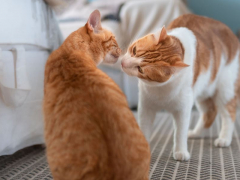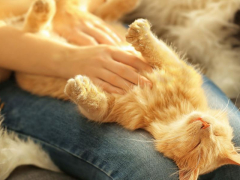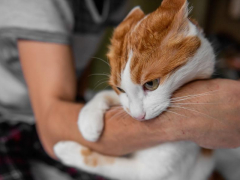
It’s depressing when you love your cat, but they don’t seem to love you back. Sometimes, it seems like the more you try to get your cat to like you, the more they pull away.
You might not know why your cat seems to hate you, but there are lots of ways you can get back in their good books. The most important thing with cats is to respect their independence. We’ll cover this and other ways how to get your cat to like you again in our article below.
Signs Your Cat Doesn’t Like You
Wondering if your cat hates you? The first thing to bear in mind is that your cat probably doesn’t hate you. “Hate” is a strong word, and it implies feelings of bitterness that cats are probably not capable of. Instead, it’s more likely that your cat is fearful of you or distrusts you. As humans, we misinterpret this standoffish body language as hate when actually it’s fear.
That being said, it’s something you’ll want to avoid, so here are some signs that your cat isn’t comfortable with you anymore:
- They leave the room when you enter
- They hide from you
- They stare at you, with unbroken eye contact
- They hiss at you
- They arch their backs, hold their tail straight, or their fur sticks up when they see you
- They bite or swipe at you
People often list “peeing outside the litter box” as a sign your cat doesn’t like you, but this isn’t accurate. Inappropriate urination can have many causes, but cats don’t do it out of spite.
If your cat is attacking you, swatting you, or biting you, it’s best to seek professional advice from a veterinarian or behaviorist immediately. Cat bites should also be seen by a medical professional as soon as they occur as they usually require antibiotics.
Why Doesn’t My Cat Like Me?
Now that you know that your cat’s behavior is suggesting fear and distrust, it’s time to look at the most common reasons why. Hopefully, knowing what you’ve done to upset your cat will help you win back their trust.
1. You Did Something They Didn’t Like
This might sound pretty obvious, but if you had to take your cat for their immunizations, moved them to a new home, brought home a baby, or just forced a pill down their throat, your cat probably won’t be your friend for a while. The good news is that they’ll probably forgive you in a few days or weeks without too much effort on your part.
2. You Tried Too Hard
It sounds silly but cats hate it when you try to make them love you. They’re independent creatures who prefer their own space. Constantly trying to touch them or cuddle them will be seen as threatening. This is often the case if you have a new cat, so relax and let them learn to love you over time.
3. You Used Punishment To Train Them
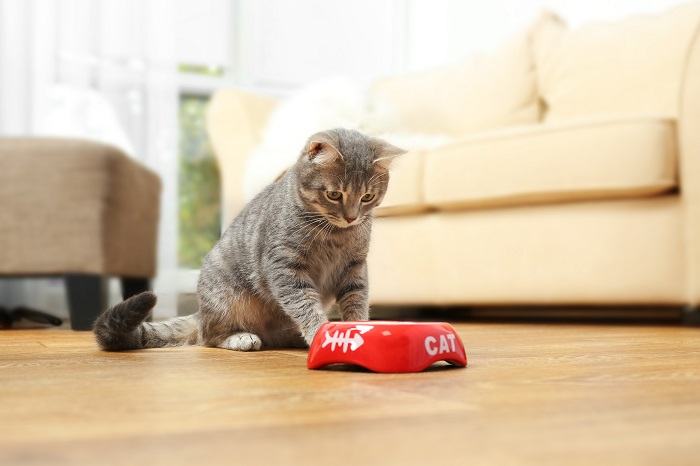
Harshly punishing or scolding your cat when they do something you don’t like is a sure way to destroy trust.
It’s hard not to yell when you find an accident outside the litter box or your cat is clawing at your carpet, but punishing your cat will destroy their trust in you. Punishing your cat might actually make them more likely to do the things that upset you, as these unwanted behaviors are often rooted in fear.
4. Your Scent Has Changed
Your cat uses their sense of smell more than the rest of their senses. It’s very delicate and very powerful. It’s perhaps not a surprise that they might not recognize you if your scent changes. New perfume? Been ill? Cuddled another cat? All of these things could cause a cat not to trust you anymore.
5. They’re Stressed or Unwell
You might be surprised to hear it’s not always something you’ve done—your cat might be acting like they don’t like you because they don’t feel right. If your cat’s behavior is new and you don’t know what you’ve done to upset them, think about whether there are other signs of illness or stress you could be missing.
Also Read: 10 Subtle Signs Your Cat May Be Sick
What To Do if a Cat Doesn’t Like You?
Once you’ve identified why your cat doesn’t like you, it should be easy enough to fix. The first thing to do is to remember that cats don’t like it if you try too hard. Cats prefer it when they can come to you on their own terms, so take your time and follow our tips below.
1. Let Them Be Themselves
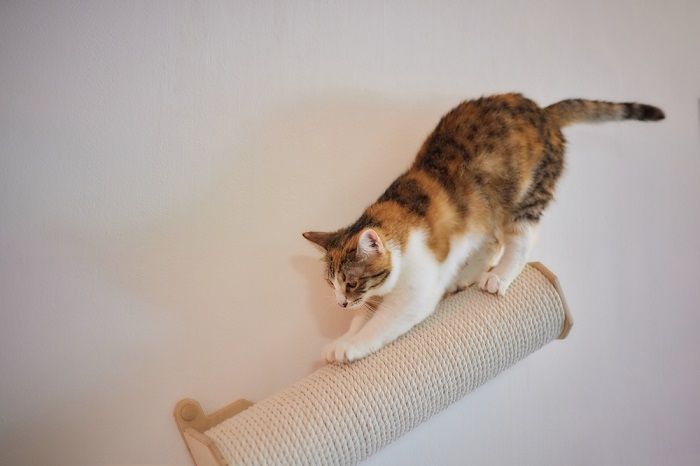
Some cats are simply independent and prefer their own space.
Don’t push your cat into doing anything unless it’s essential for their health. If they’re aloof and distant, it’s best to accept it and try not to let it bother you. Not all cats will enjoy human company, especially if they haven’t been properly. It’s best to accept your independent cat’s personality rather than try to change it.
2. Use Food
Your cat currently views you in a negative way, so it’s time to turn that around and make them feel positive about you instead. Food is a great way to create a positive association. If your cat is very nervous around you, don’t try to force them to come close by offering food near you—you’ll only make them suspicious. Instead, first build confidence that you mean no harm by reliably offering food in the same place every day.
After a while, you can sit in the same room as your cat while they eat. Don’t move to greet them, and sit only as near as they’re comfortable with. As your cat starts to get more comfortable with you, you can sit nearer the bowl, or even roll high-value treats toward them. The key is to be as trustworthy as possible—never break their trust by moving to stroke them or forcing them to get too close if they are uncomfortable.
3. Use Play
For some cats, playtime can be a great way to build a positive association. Using wand toys allows them to play at a distance from you, so they’ll feel more confident. Don’t play too rough or whip the wand about in a scary way—it might undo all your hard work. Keep some toys out of reach until you’re there. You want them to associate the feelings of happiness and excitement they get from playing with the sight of you.
4. Try Catnip
If your cat responds to it, catnip might also be useful as a positive modifier. Catnip can make cats relax and feel silly—perfect if your cat is on her guard around you a lot. You can use a catnip toy or put a sprinkle somewhere near their cat tree, then sit nearby and watch the effects.
5. Pay Attention to Your Body Language
Your cat will be trying to read your body language to determine if you’re a threat. Ensure you keep a relaxed posture and make yourself smaller by sitting or crouching on the floor. Cats use a ‘“slow blink” to show trust in one another. You can try slow blinking if you catch your cat’s eye, but be careful not to stare at them for too long as this can be threatening.
6. Use Pheromones
If your cat seems really agitated, consider using pheromones to help her feel safe again. Commercially available pheromones mimic the signals cats leave to tell them an area is safe and part of their territory. Having a pheromone plug-in in the main room you both spend time might help your cat relax around you.
7. Talk To A Behaviorist
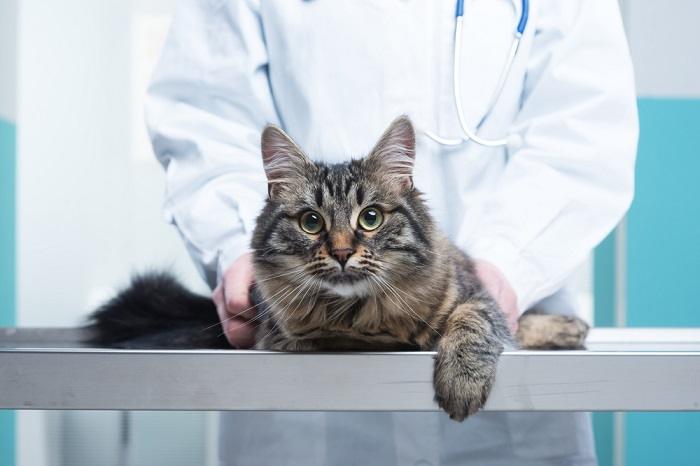
A behaviorist can identify the cause of aggressive behavior and help you to resolve it.
If your cat is attacking you or other cats in the house, it might be time to consider talking to a feline behaviorist. They will be able to look at your individual situation and recommend modifications that can make your cat feel more relaxed around you.
Final Thoughts
If your previously cuddly cat stops coming for a snuggle and starts wanting alone time, it can feel like they hate you. Cats aren’t really feeling hate or dislike – it’s more likely they’re fearful and we’re misreading their signs.
It’s important not to force a cat to participate in anything unless it’s necessary for their health – cuddling them, forcing them into silly costumes, or otherwise messing with their routines is a sure way to make your cat distrust you. To get them to like you again, you must take your time, and use positive modifiers like food and play to help your cat relax around you.
Also Read: 10 Signs Your Cat Really Does Trust You
